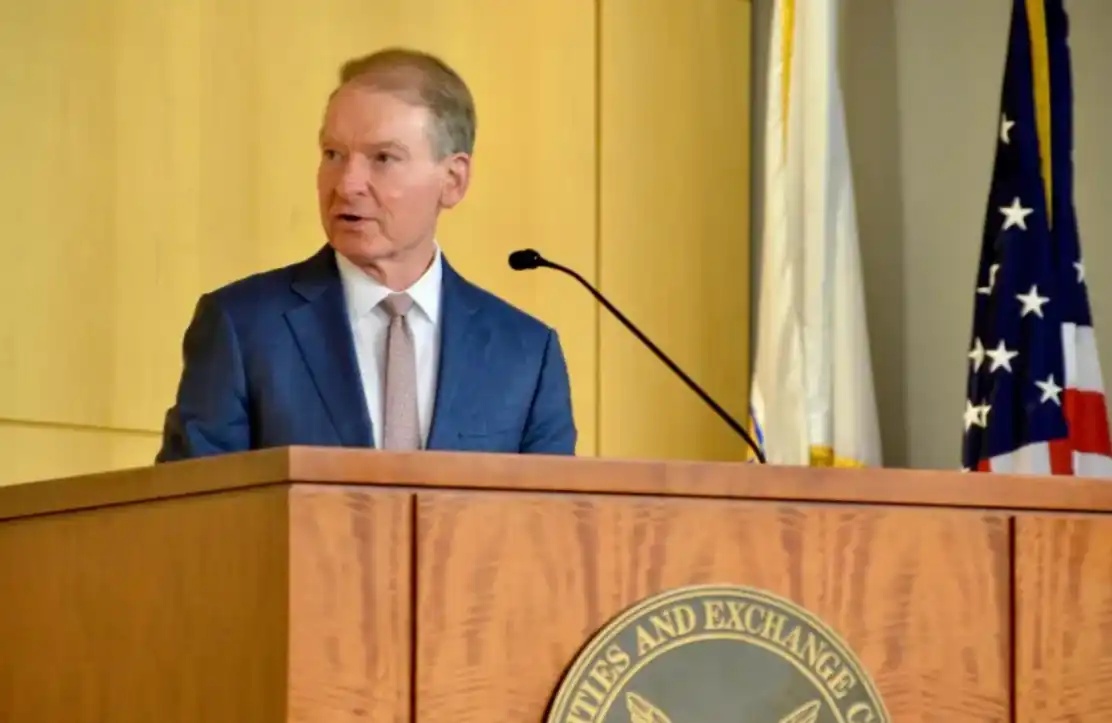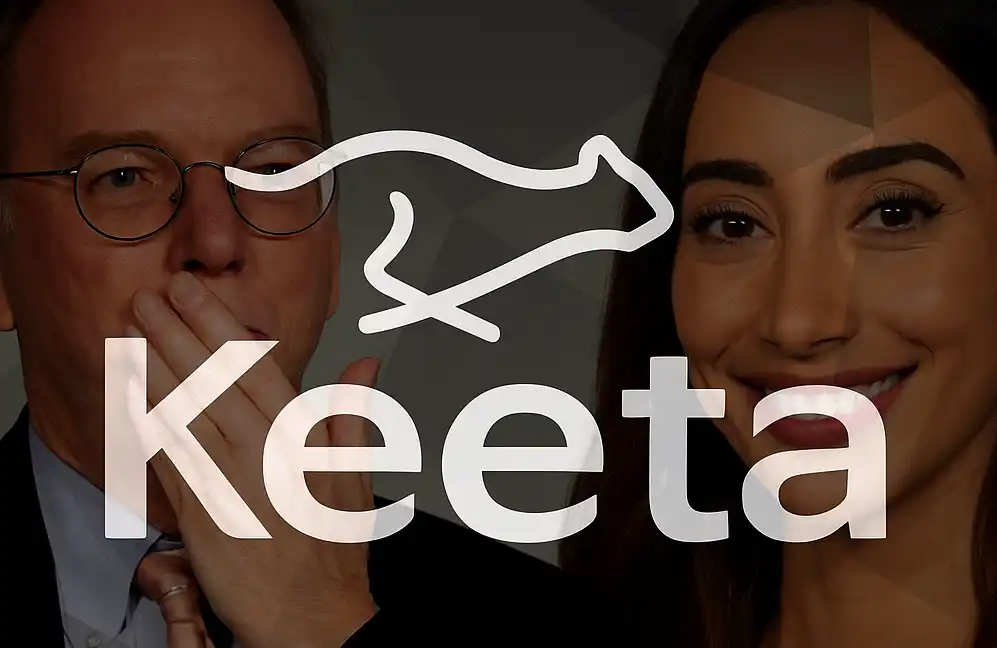The Federal Reserve Welcomes a New Regulatory Chief: Is the Final Hawkish Stronghold Starting to Crumble?
Original Article Title: "Federal Reserve Welcomes New Regulatory Chief, Is the Final Hawkish Fortress About to Loosen Up?"
Original Article Author: ChandlerZ, Foresight News
Recently, the U.S. Senate voted 48-46 in favor to confirm Michelle Bowman as the Vice Chair for Supervision of the Federal Reserve. This Republican from Kansas will succeed Michael Barr, taking on the top regulatory role at the Fed, where she will be directly responsible for overseeing stablecoin issuers and crypto-related entities.
Michelle Bowman: From Board Member to Regulatory Chief
Michelle Bowman, born and raised in Kansas, holds a Bachelor's degree in Advertising and Journalism from the University of Kansas, as well as a Juris Doctor from Washburn University School of Law and is a registered attorney in New York. In her early career, she served in various roles in the U.S. Congress, working for Senator Bob Dole and as a legal advisor on the House Committee on Transportation and Infrastructure and the Committee on Government Reform and Oversight. Starting in 2002, she entered the federal executive branch, serving as Director of Congressional and Public Affairs at the Federal Emergency Management Agency (FEMA) and later as Deputy Assistant Secretary and Policy Advisor at the Department of Homeland Security, providing policy support to the first Secretary of Homeland Security, Tom Ridge.

After her federal government service, Bowman moved to London to establish and operate a government and public affairs consulting firm. In 2010, she returned to her hometown and joined the Farmers & Drovers Bank in Kansas, serving as Vice President for seven years, gaining an in-depth understanding of community bank operations. In 2017, she was appointed as the Kansas State Bank Commissioner, overseeing state-chartered banking institutions, and joined the Federal Reserve Board in 2018.
During her tenure at the Fed, Bowman is known for her focus on community banks, emphasizing the balance between regulation and innovation. She has repeatedly emphasized that banking regulatory tools should not be used to achieve goals unrelated to finance and has called for maintaining the soundness of the banking system while encouraging innovation. As the Vice Chair for Supervision, she will lead the development of policies on stablecoins, crypto assets, and the entry of fintech firms, seen as a key figure in a potential shift in the Fed's position.
She has raised questions about central bank digital currencies (CBDCs) multiple times in the past and has also warned about the risks stablecoins may pose in the absence of clear rules. During an April hearing, Michelle did not clearly state her policy leanings regarding crypto assets.
The position of Vice Chair for Supervision at the Federal Reserve was established in the aftermath of the 2008 financial crisis with the purpose of separating the Fed's monetary policy and supervisory responsibilities. Upon taking office, Michelle is expected to have a direct impact on crypto business admission, stablecoin regulation, and more. She recently announced that the Federal Reserve will overhaul the regulatory rules for the largest and most complex domestic banks, revealing that the Fed will soon launch multiple projects aimed at easing requirements, simplifying supervision, and addressing long-standing areas of criticism within the banking industry.
Driving a Regulatory Attitude Shift
Against the backdrop of a warming overall regulatory environment for crypto in the United States, the Federal Reserve has consistently been the most cautious. Historically, the Fed, together with the OCC and FDIC of the Treasury Department, has restricted channels through which crypto companies can access banking services. Even as the political environment has shifted, the Fed has maintained a cautious stance towards cryptocurrencies.
Previously, Fed Chair Powell stated that Congress should advance a "larger regulatory framework around cryptocurrency" to address the potential risks of stablecoins. This cautious position contrasts sharply with the open attitudes of other regulatory agencies. Although the Fed has recently relaxed some restrictions, the overall regulatory environment remains unclear.
In April, the Fed's Board of Governors announced that it would rescind previous guidance on bank crypto asset and USD stablecoin activities and adjust related expectations to ensure alignment with evolving risks while further supporting innovation in the banking system. Specific measures include revoking the 2022 regulatory letter that no longer requires state member banks to provide advance notice of crypto asset activities, shifting to monitoring through routine supervisory processes; rescinding the 2023 letter regarding the non-objection process for state member banks engaging in USD stablecoin activities; and collaborating with the FDIC and OCC to revoke the 2023 joint statements issued by federal banking agencies on bank crypto asset activities and risk exposure.
Michelle Bowman has repeatedly stated in public that regulation should not be a reason for banks to "close the door" on services. She believes that regulatory agencies should not use rules to exclude legitimate businesses from accessing financial services, especially in pursuit of unrelated policy goals. These remarks directly address the crypto industry's long-standing dissatisfaction with "banking the unbanked."
During her confirmation hearing, Michelle pledged to promote a safe and sound banking system through a pragmatic regulatory approach, establishing a transparent and tailored bank regulatory framework to encourage innovation. This pragmatic and innovation-friendly approach is not commonly seen under the strict regulatory style of her predecessor, Michael Barr. Based on her current statements, her evidence-based regulatory approach is likely to improve bank access for crypto companies and introduce a balanced regulatory framework for stablecoins, in contrast to the Fed's previous cautious stance.
Key Period for Policy Shift
From the overall policy direction of the Trump administration, Michelle's appointment is just part of the crypto-friendly policy. The Senate Agriculture Committee plans to consider Trump's nomination of Brian Quintenz as chairman of the Commodity Futures Trading Commission on June 10.
However, regulatory policy changes still take time and must consider the attitudes of Congress and other regulatory agencies. The regulation of stablecoins in the United States is currently overseen by multiple agencies, leading to confusion and complexity. The GENIUS Act seeks to establish a federal framework while allowing state regulatory rules to remain in place. Republican efforts aim to limit the Federal Reserve's authority over stablecoin issuers, while Democrats advocate for broader regulation, including oversight of non-bank issuers. This inconsistency highlights the urgent need for a unified regulatory approach, and Bowman may play a key role in this divergent regulatory environment, determining how the Fed effectively interacts with and guides the stablecoin market.
Overall, Michelle Bowman's appointment may indeed loosen the final hawkish stronghold of the Federal Reserve. With the overall crypto environment in the United States already quite friendly, a change in the Fed's attitude could eliminate the last barrier to industry development. However, the specific policy effects remain to be seen based on her performance in actual work.
Welcome to join the official BlockBeats community:
Telegram Subscription Group: https://t.me/theblockbeats
Telegram Discussion Group: https://t.me/BlockBeats_App
Official Twitter Account: https://twitter.com/BlockBeatsAsia
 Forum
Forum OPRR
OPRR Finance
Finance
 Specials
Specials
 On-chain Eco
On-chain Eco
 Entry
Entry
 Podcasts
Podcasts
 Activities
Activities


 Summarized by AI
Summarized by AI







